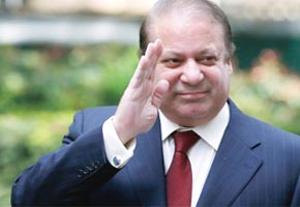 Islamabad, May 22: Pakistan Prime Minister Nawaz Sharif is still considering to attend the swearing-in ceremony of Prime Minister-designate Narendra Modi and a final decision will be taken by the evening after consultations with the civil and military leaders, officials said on Thursday.
Islamabad, May 22: Pakistan Prime Minister Nawaz Sharif is still considering to attend the swearing-in ceremony of Prime Minister-designate Narendra Modi and a final decision will be taken by the evening after consultations with the civil and military leaders, officials said on Thursday.
Foreign office has confirmed that formal invitation has been received but any decision by the Prime Minister to attend the ceremony on May 26 in New Delhi has not been taken as yet.
Sources within Sharif's Pakistan Muslim League-Nawaz (PML-N) said that Prime Minister wanted to normalize ties with India to promote commercial and business activities.
"He is keen to improve ties which is also the official policy of the party but he needs to take various aspects of the relations into consideration," a top PMLN leader said.
He said the invitation has come at a short notice and the premier needs time to accept it.
He also said that any decision about going to India will be made by the evening after consultations with the civil and military leaders.
Diplomatic sources said that unexpected move by India's Prime Minister-designate has left Sharif with difficult choices.
"If he skipped the invitation it will send a very negative message to India and the world but the acceptance may bring backlash from the hardliners and hawks who consider Modi as anti-Pakistani," said a diplomat.





Comments
Add new comment